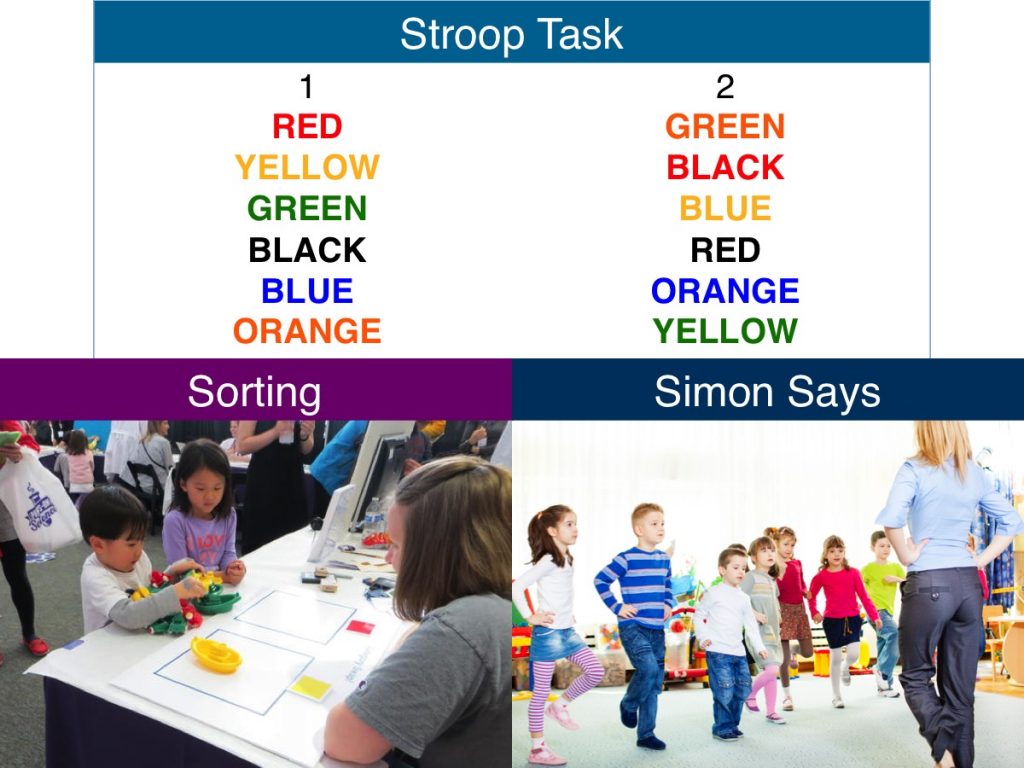
Adapted from Stroop, 1935
Compared to monolinguals, bilinguals tend to perform better on tasks like this one. This may be because bilinguals constantly practice switching between the rules of two languages. Monolinguals can improve their cognitive flexibility with practice. Sorting by different features, or playing games like “Simon says” which ask children to inhibit a response, are a fun way to practice.
There are other cognitive advantages related to bilingualism. Bilingual 6-month-olds have a more flexible memory system compared to their monolingual peers. This advantage continues over the lifespan. Some studies suggest that bilingualism may help delay age-related decline in abilities like cognitive flexibility and memory.
-
- Bilingual
- a person who knows and uses two languages
- Code mixing
- mixing words from different languages in the same sentence or situation
- Cognitive flexibility
- the ability to quickly switch between different concepts or rules
- Dominant language
- is the language a bilingual is most skilled at understanding and/or speaking
- Executive function
- a set of mental abilities that help us plan, focus attention, problem solve, and switch between tasks
- Language transfer
- applying the knowledge from one language to another language
- Monolingual
- a person who knows and uses a single language
- Simultaneous bilingualism
- a person learns two or more languages from birth
- Sequential bilingualism
- a person first learns one language then learns one or more languages later